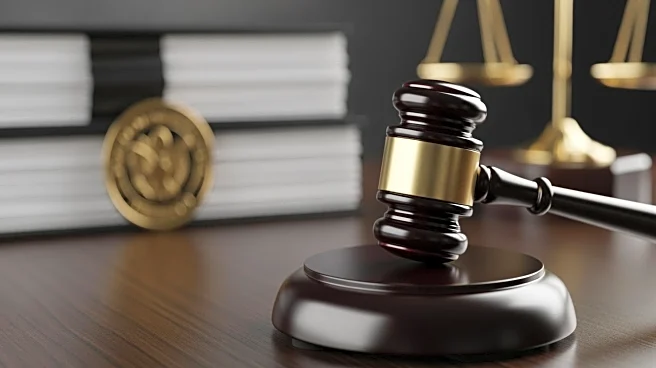What's Happening?
The Nevada Supreme Court has ruled that the criminal case against six Republicans accused of submitting a false certificate declaring President Trump the winner of Nevada's 2020 presidential election should proceed in Clark County. This decision overturns
a previous dismissal by a state judge who argued that the alleged crimes occurred elsewhere. The six individuals, including prominent Republican figures, signed certificates in December 2020 falsely claiming Trump had won the state, despite Joe Biden's victory by over 30,000 votes. The case is significant as it represents efforts to prosecute individuals involved in attempts to overturn the 2020 election results.
Why It's Important?
The ruling is a pivotal moment in the ongoing legal battles surrounding the 2020 election and efforts to hold accountable those who attempted to subvert the democratic process. By allowing the case to proceed in Clark County, a region with a predominantly Democratic electorate, the likelihood of a conviction may increase. This decision underscores the importance of venue in legal proceedings and highlights the challenges faced by prosecutors in swing states. The outcome of this case could set a precedent for similar cases across the country, impacting future electoral integrity and legal accountability for election-related misconduct.
What's Next?
The case will now move forward in Clark County, where a jury will hear the evidence against the accused. The defendants have pleaded not guilty, claiming their actions were protected under the First Amendment. As the trial progresses, it will be closely watched by legal experts and political analysts, given its implications for election law and accountability. The Nevada Attorney General, Aaron Ford, has expressed his commitment to pursuing the case, emphasizing the importance of upholding the state's election results. The trial's outcome could influence similar cases in other states, shaping the legal landscape for election-related offenses.
Beyond the Headlines
This case highlights the broader ethical and legal challenges in addressing attempts to undermine democratic processes. It raises questions about the balance between free speech and actions that may constitute election fraud. The decision to prosecute in Clark County reflects strategic considerations in legal proceedings, where the composition of the jury can significantly impact the trial's outcome. The case also serves as a reminder of the ongoing political divisions and the contentious nature of election integrity debates in the United States.
















